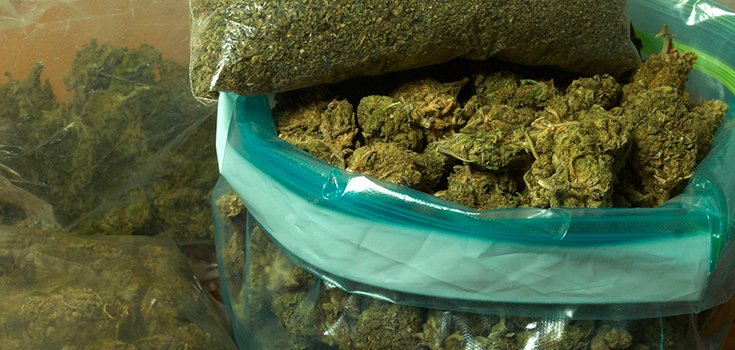Colorado is Rolling in Legal Marijuana Tax-Money: More States to Follow

States who are tax-revenue poor may want to look hard at Colorado’s latest windfall. The sale of legalized marijuana is helping the state rake in some serious profits, and other states are looking to this model for their own generation of funds.
Update: This article has been updated to include figures through December, 2016.

Tax revenue from the sale of legal recreational and medical marijuana in Colorado is projected to reach $134 million for 2014, and this is an estimate far outperforming original measures. Smart regulators of Cannabis know that this is a billion dollar industry. Considering recreational sales only began on January 1st, 2014, this is a market with unheard of potential.
“It’s well on its way to being a billion-dollar industry,” Michael Elliott, executive director of the Marijuana Industry Group, told The New York Times. “We went from 110,000 medical marijuana patients to four billion people in the world who are 21 and up.”
Washington is looking at similar numbers. Retail sales of marijuana are expected to begin in June, and budget forecasters estimated recently that marijuana could bring the state nearly $190 million in taxes for the four years beginning in the middle of 2015.

That’s a lot of tax money to improve infrastructure, build libraries, schools, and create community green spaces. It is a way to help make bankrupted states solvent. There are currently 13 more state looking to legalize and get on the gravy train.
And with with the U.S. Treasury issuing guidelines to banks making it legal for them to provide services to marijuana-related businesses, some of the biggest hurdles are cleared out to those who might want to operate a legal hemp or medical marijuana business. This move by the feds only increases the chances for states to take advantage of the potential tax revenue marijuana legalization has to offer – undoubtedly speeding up the overall legalization process nationwide.
Medical marijuana just might help turn our country around. It’s about time.
Colorado Activists Try to Halt Tax Collections for Marijuana Sales
In June, 2014, a Colorado attorney, Rob Corry has sued the Denver District Court stating that Colorado’s tax system violates the 5th amendment, protecting individuals from self-incrimination, and violating the US Constitution.
Corry puts forth that when marijuana growers and sellers pay taxes on marijuana sales, they incriminate themselves under federal law, which still bans marijuana and has it classified as a Schedule I drug in company with heroine and cocaine.
Corry also has a history of legal troubles with marijuana, including illegal public use, and this may, in fact, be part of his motivation for the lawsuit.
I don’t think the case went anywhere.
October, 2014 Update: Marijuana Sales in Colorado Up 10% Since August – $45.2 Million Generated in Taxes
In August 2014, sales for both medical and recreational marijuana were up 10%.
As reported by The Cannabist:
“In August, customers purchased more than $34 million in recreational cannabis — up from $29.2 million in July and $24.6 million in June. Consumers bought more than $33.3 million in medical marijuana in August — up from $29.9 million in July and $29.2 million in June.
The marijuana tax numbers are also adding up. Since Jan. 1, Colorado has brought in more than $45.2 million in taxes, licenses and fees for recreational and medical marijuana.”
By now, the legalization of marijuana in Colorado has already created more than 10,000 new jobs, while other cities flounder. The U.S. Department of Labor reports that the jobless rate is down to 5.9%, but we have yet to see the ramifications of quantitative easing, and other ‘too-big-to-fail’ banking scams.
Marijuana Sales in Colorado Topped $1 Billion in 2016
Sales of marijuana in Colorado topped $1 billion in the first 10 months of 2016. Colorado Department of Revenue figures released December 12 show dispensaries in the state sold $720.7 million of recreational marijuana from January through October, and $371.4 million of medical cannabis during the same time period. That’s a total of nearly $1.1 billion.
Marijuana sales struck an all-time high in September, pulling in $127.8 million. Sales weren’t too shabby in October, either – shops sold $82.8 million of recreational marijuana and $35 million of medical cannabis.
That means the state raked in nearly $150 million in taxes. Under Amendment 64, which for legal recreational marijuana sales in Colorado beginning in 2014, $40 million of that amount will go to public school construction projects.
The state’s public school fund reportedly received the remainder of the excise tax, with some of that money going toward substance abuse treatment and prevention, law enforcement, and healthcare programs.

There are 3 different taxes on Colorado’s recreational weed – the standard 2.9% state sales tax, a special 10% sales tax, and a 15% excise tax on wholesale transfers. The 15% excise tax is what will go to school construction projects.
Marijuana has brought other perks to the state, including 18,000 new jobs in 2015, and a noticeable drop in crime rates.

every one should have the human right to grow there own!
Here’s the model. If you want pot, you have to give up your firearms.
Does this mean that Maryland will now be known as “Maryjaneland”